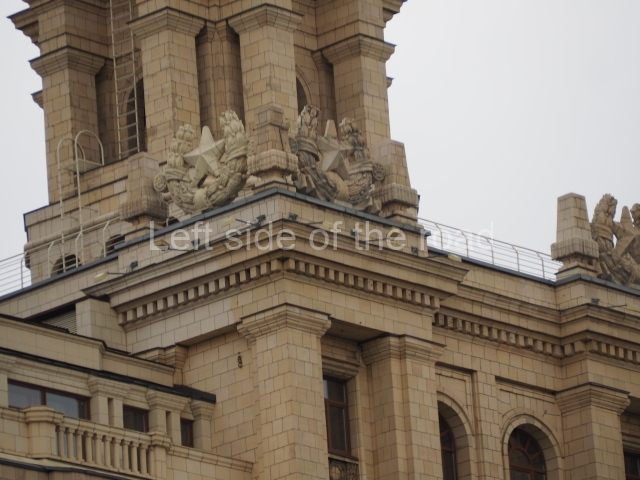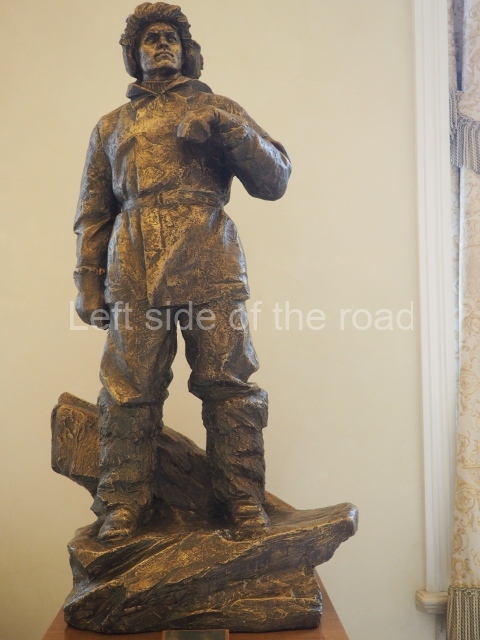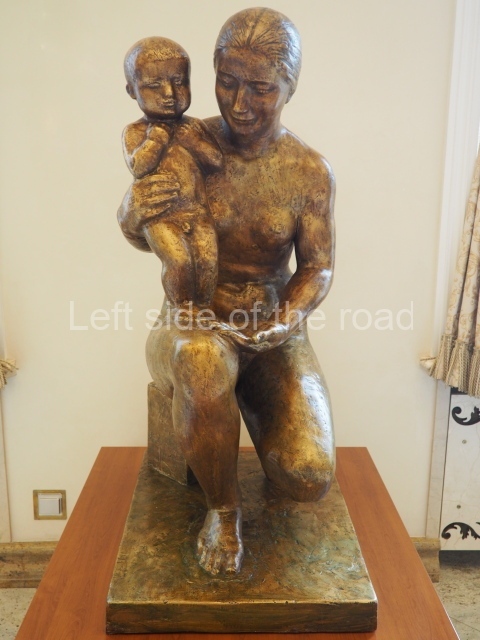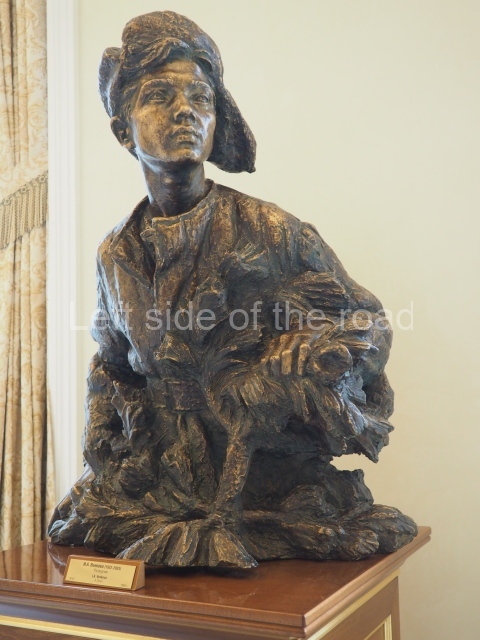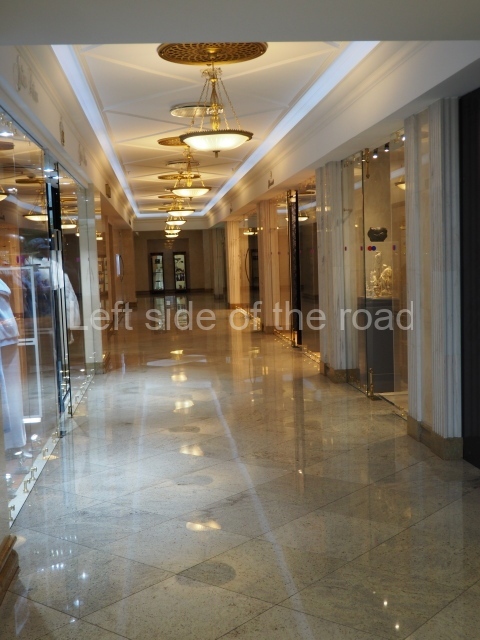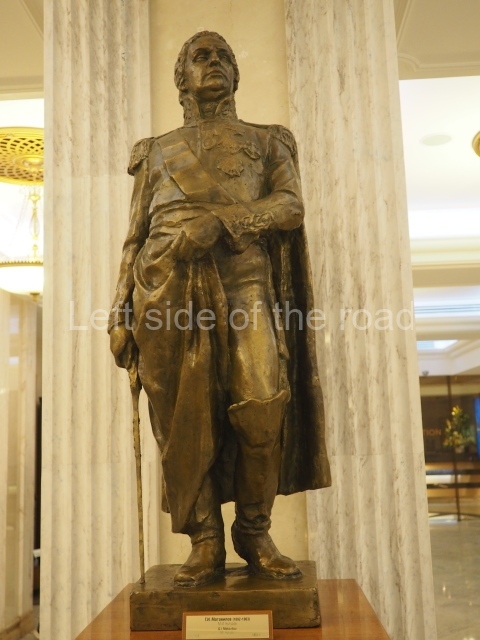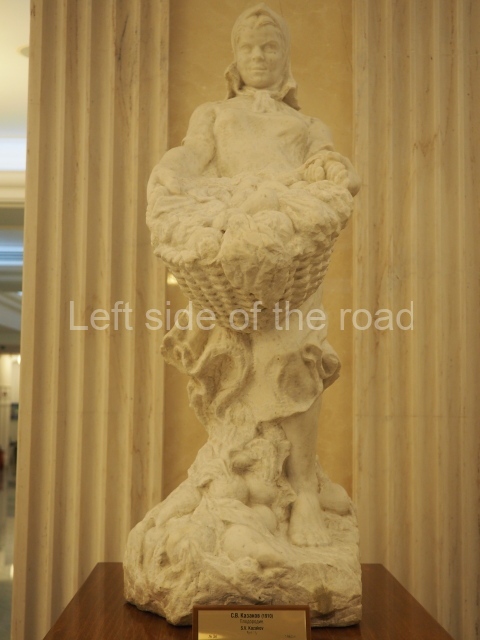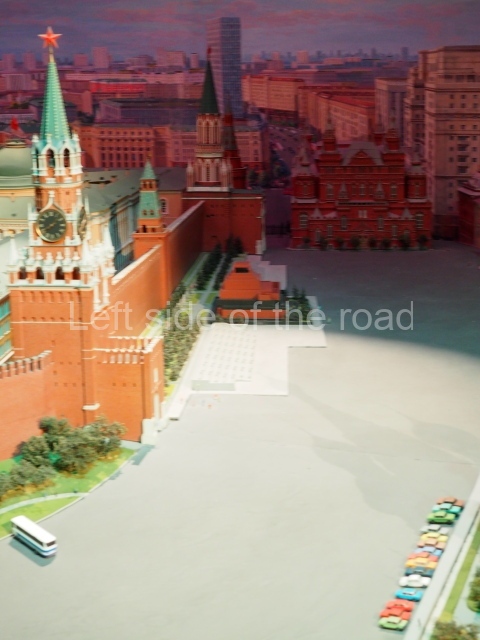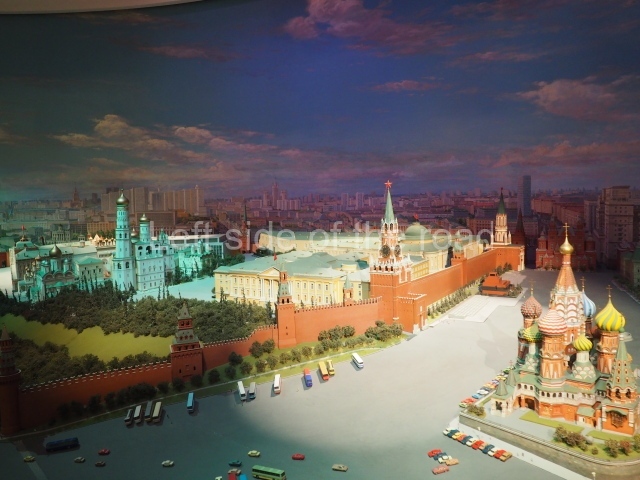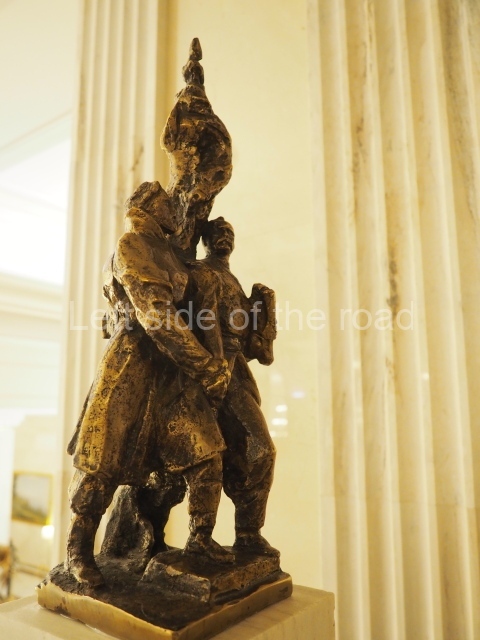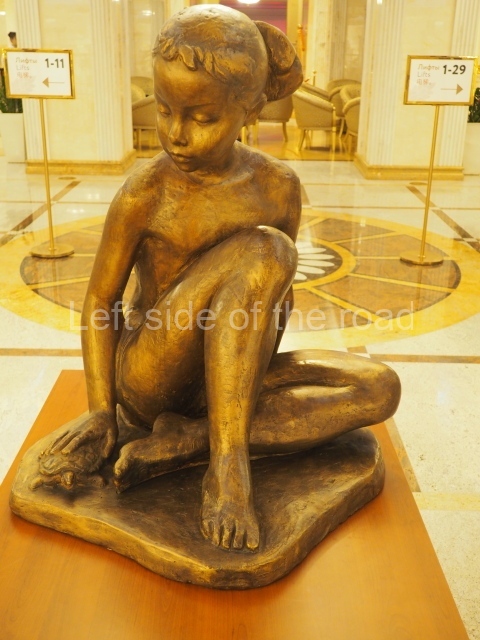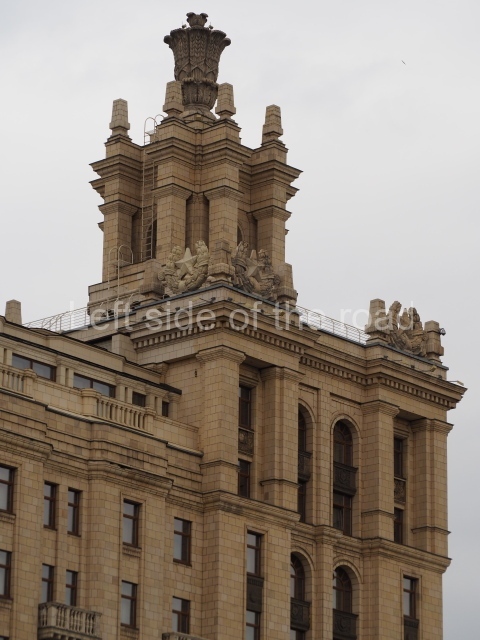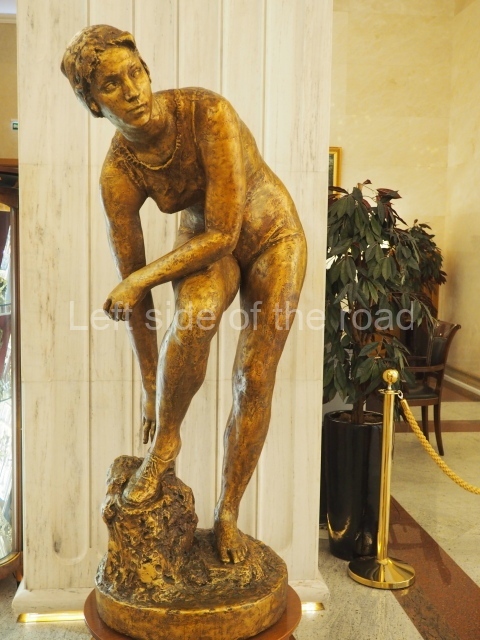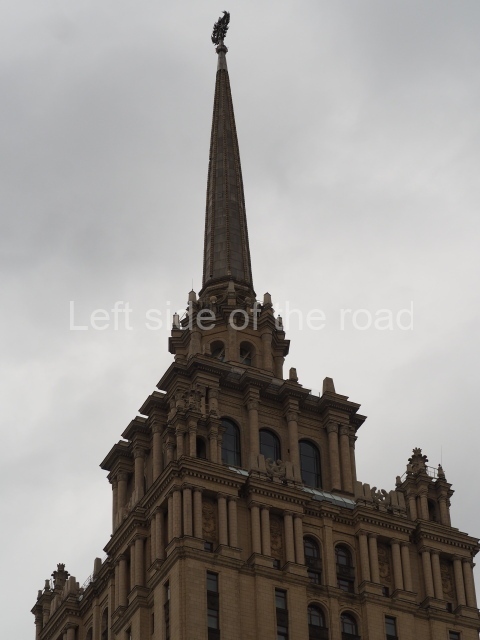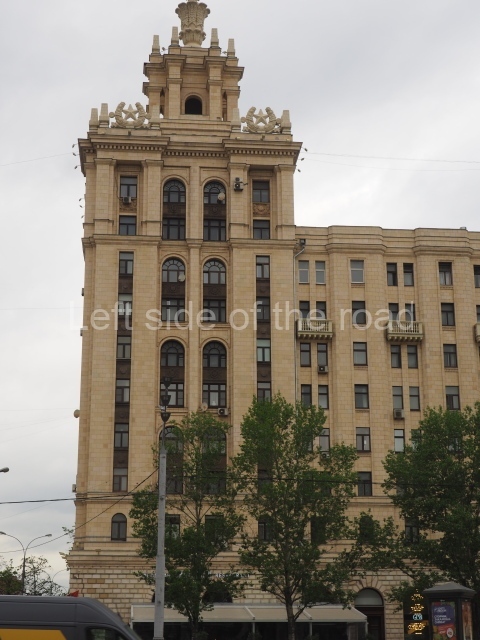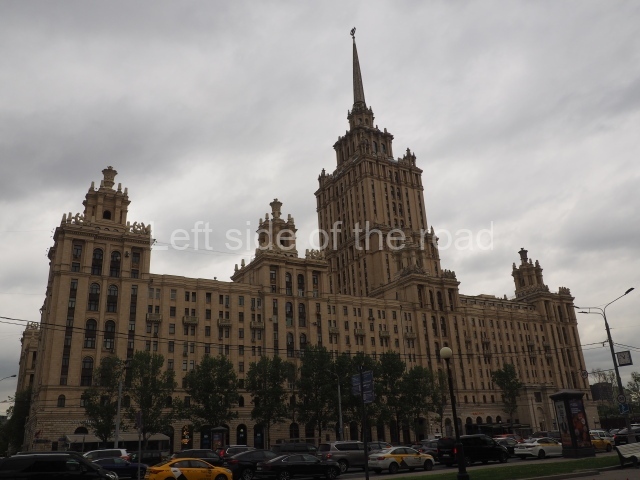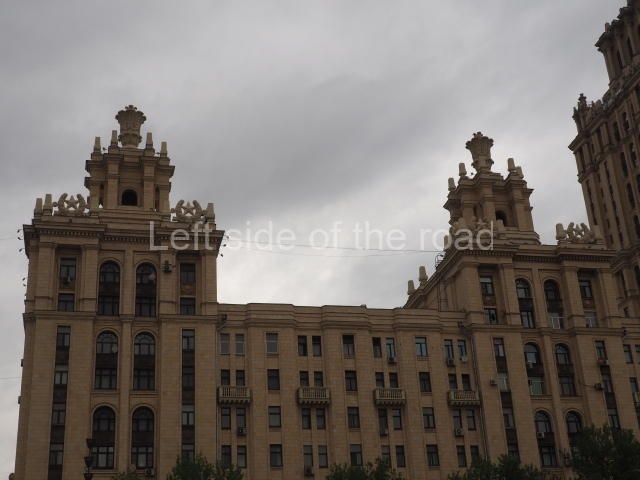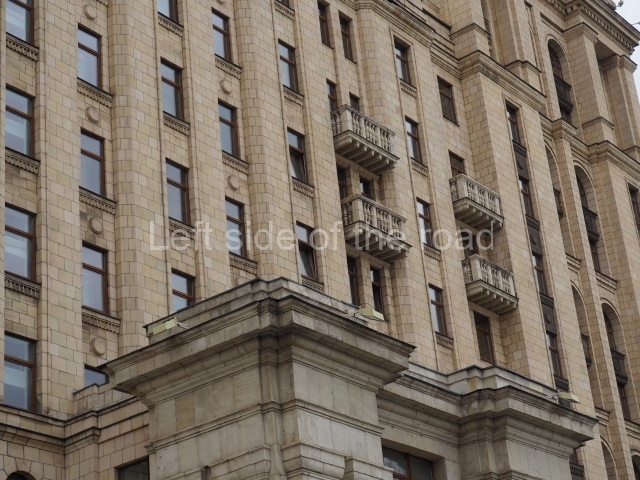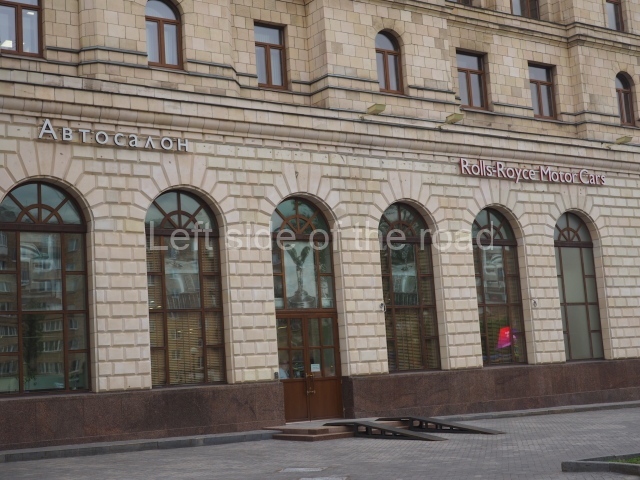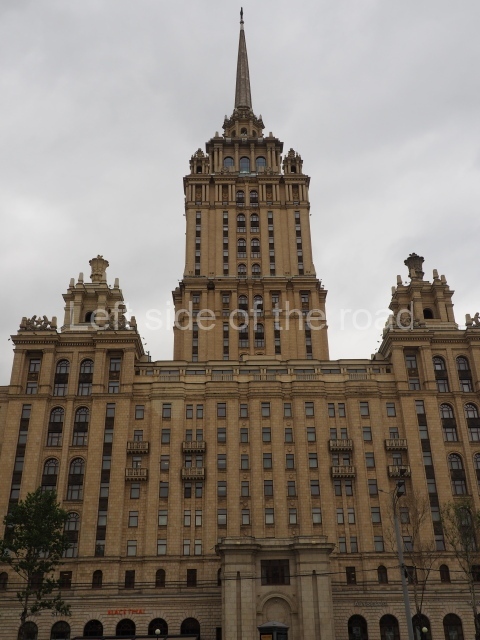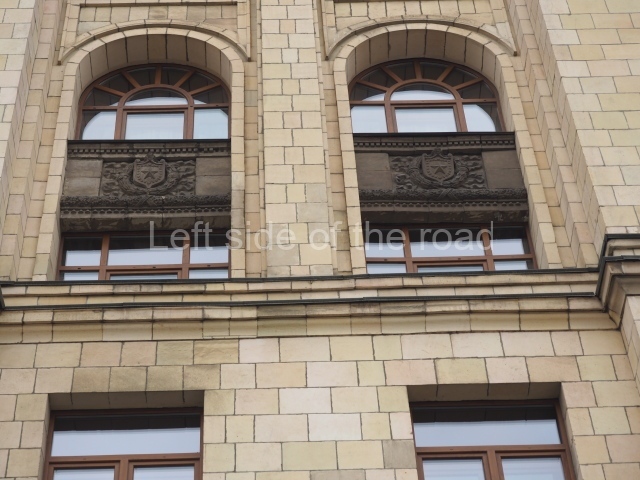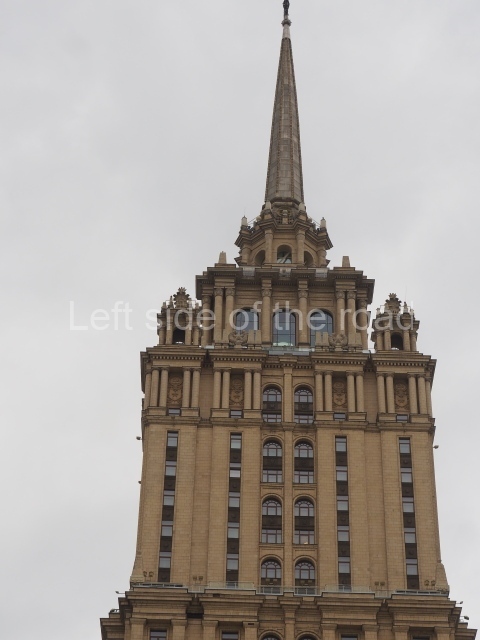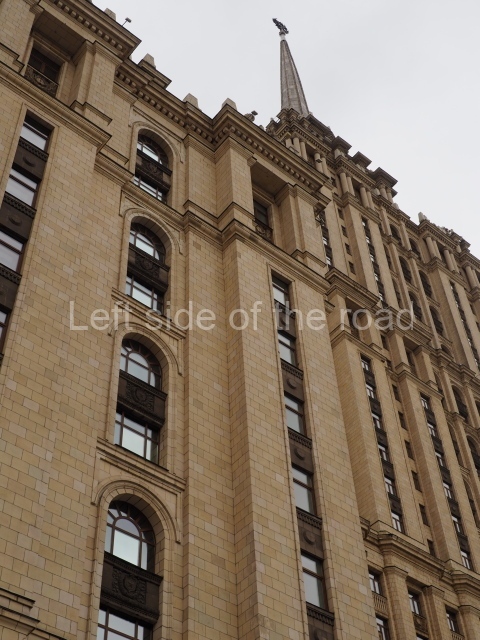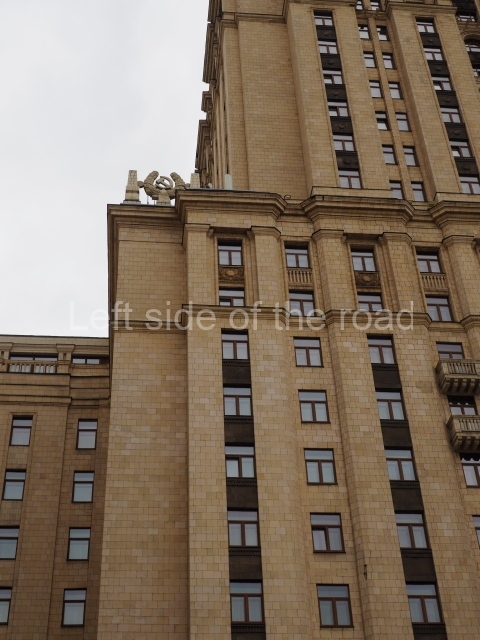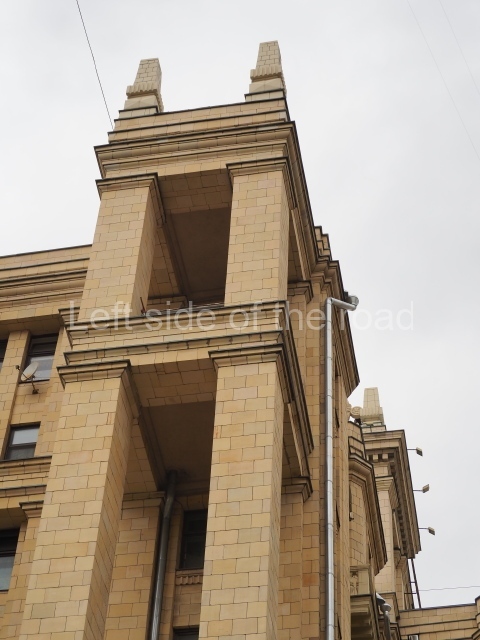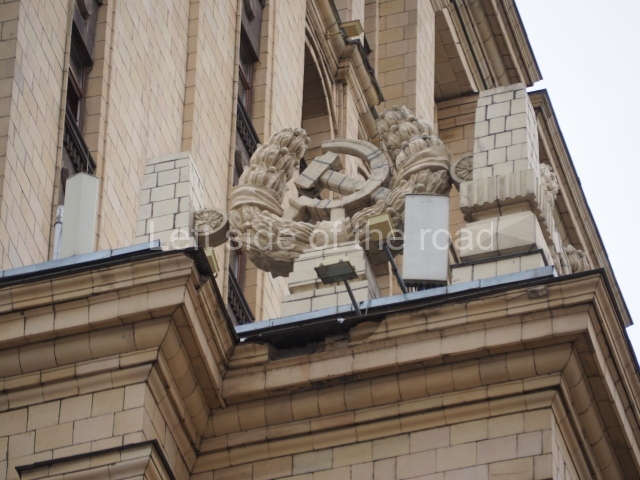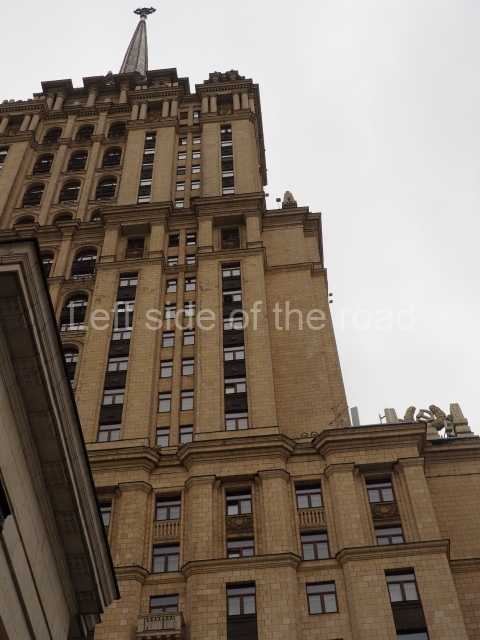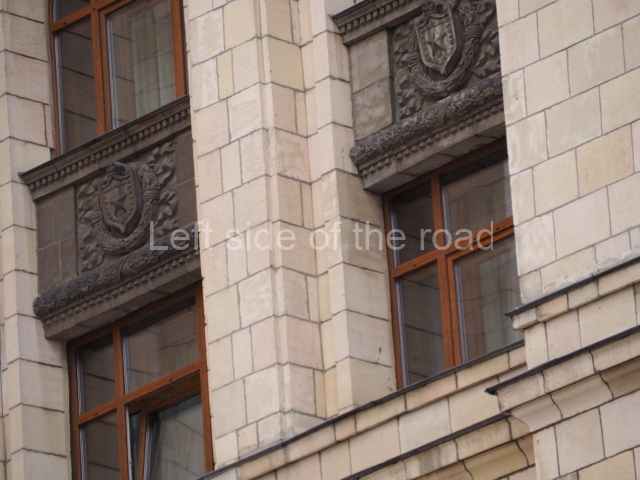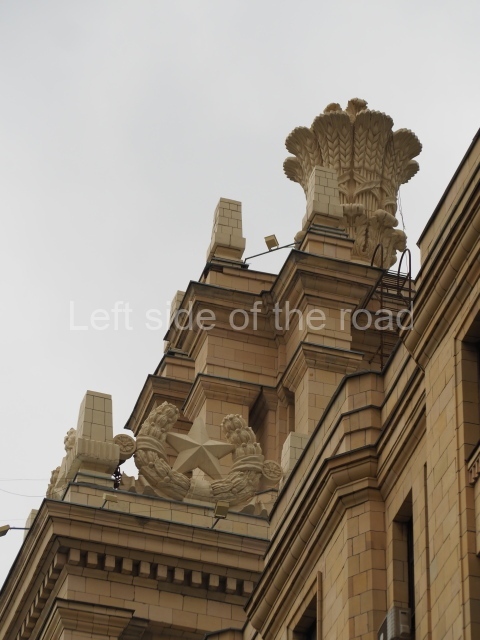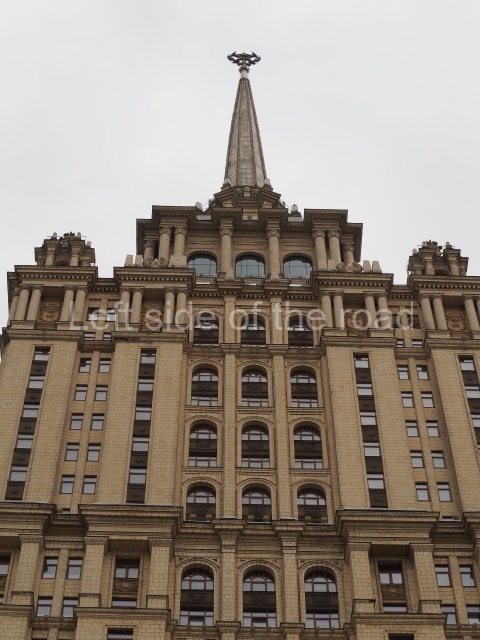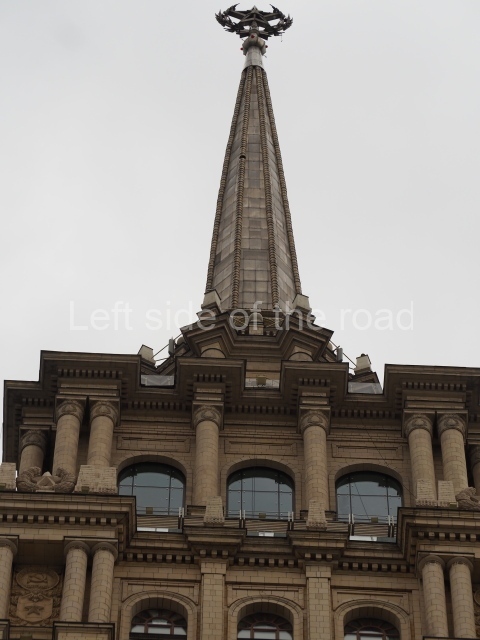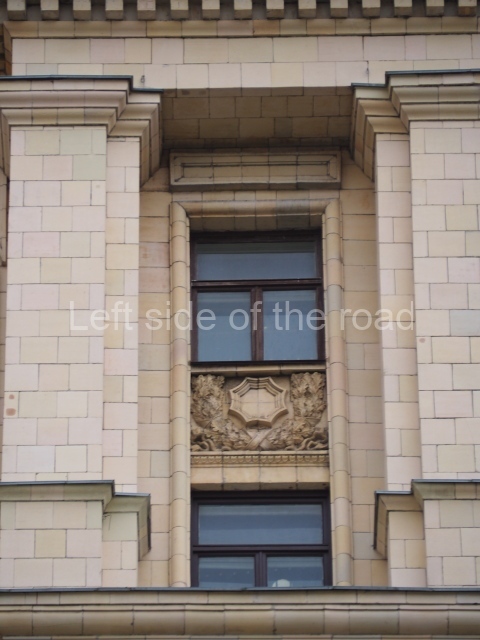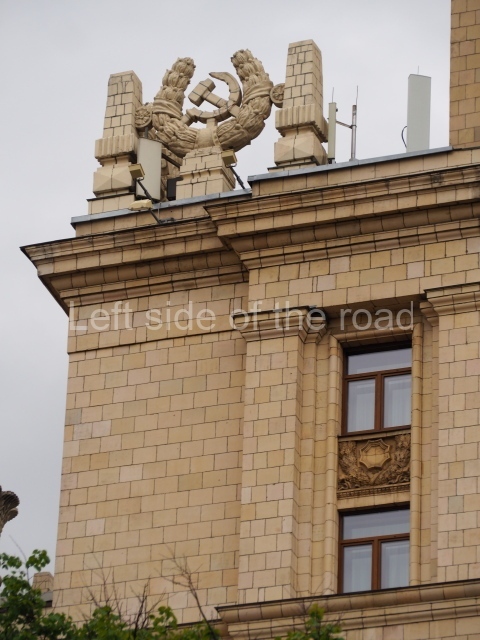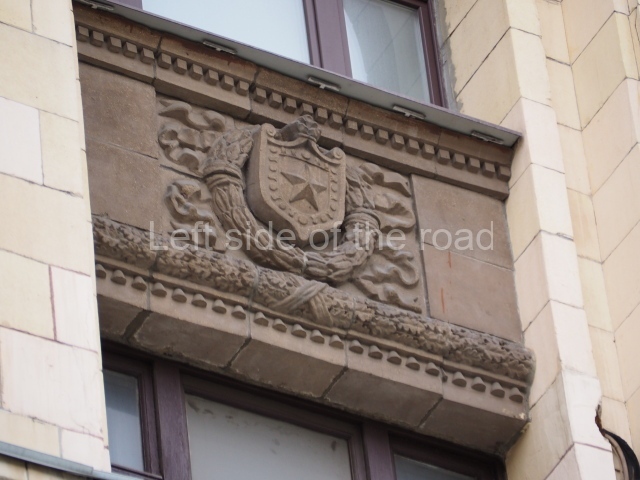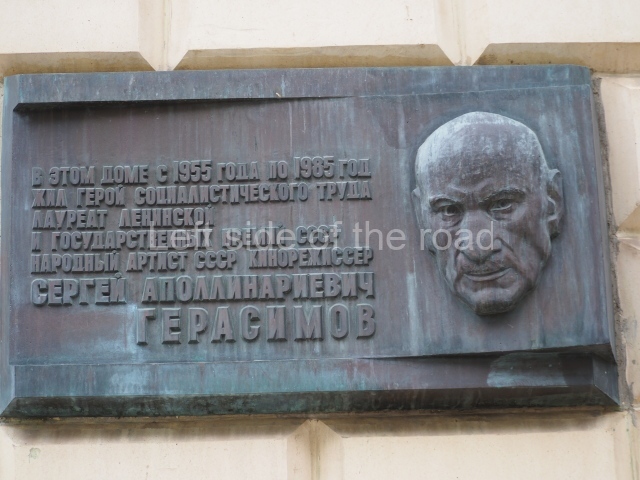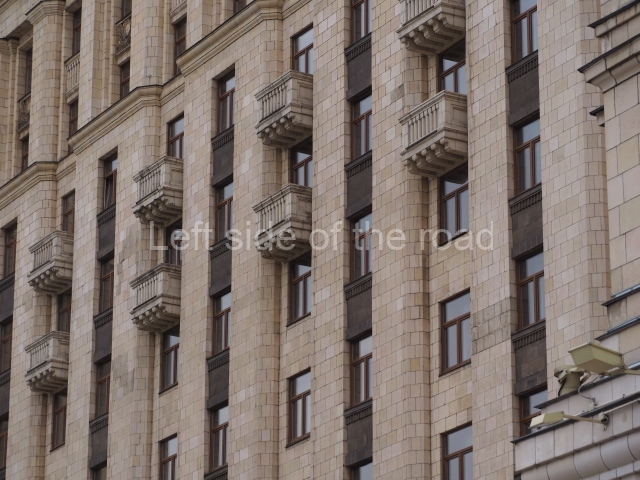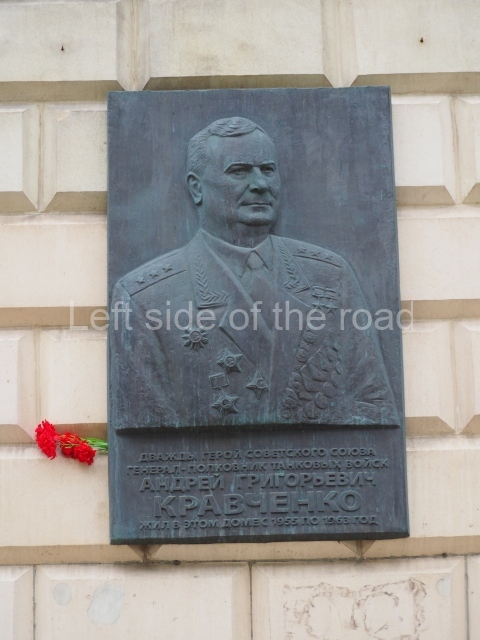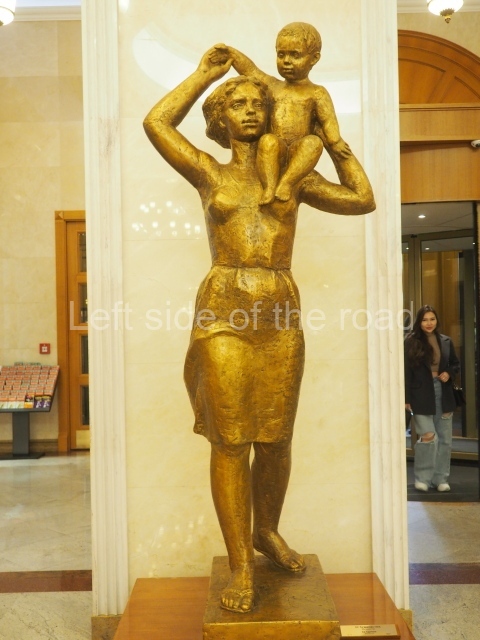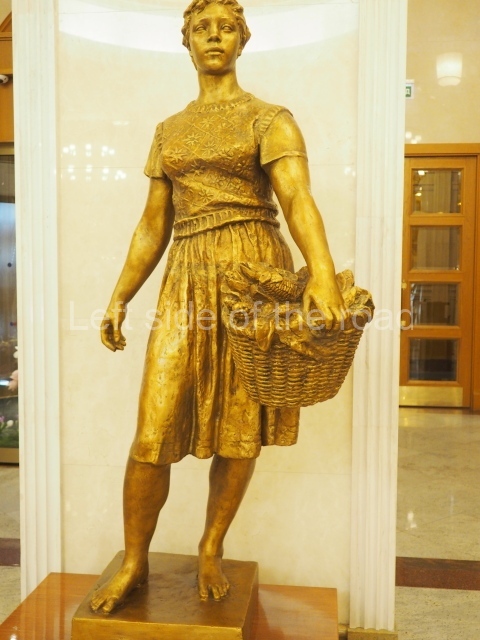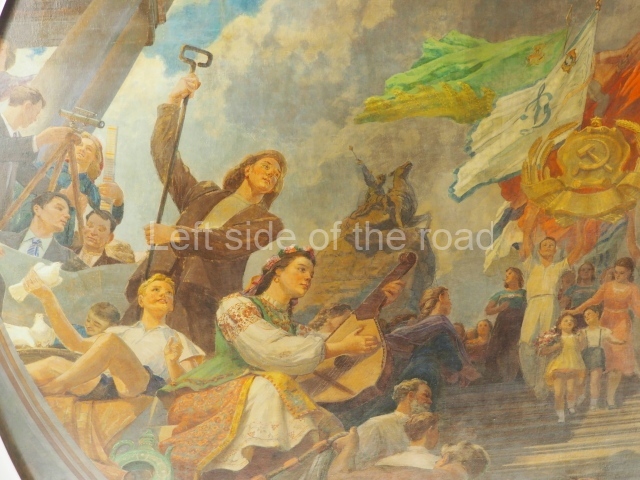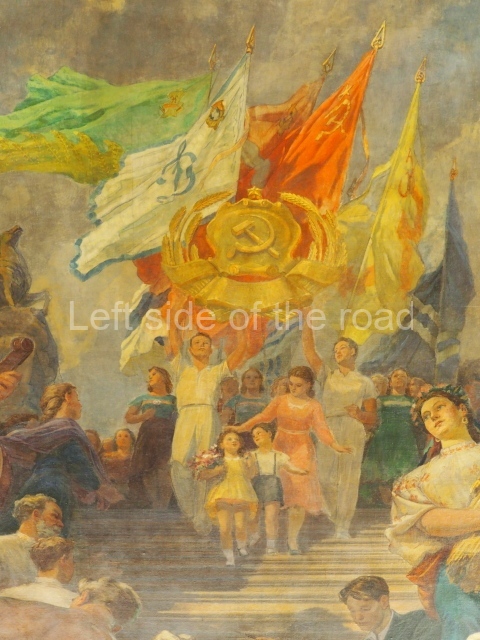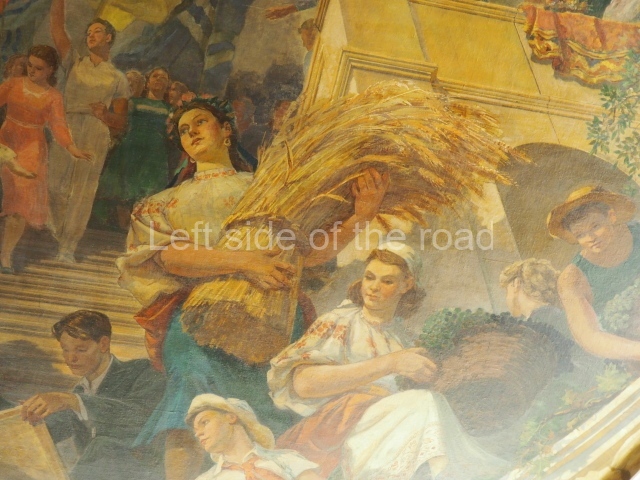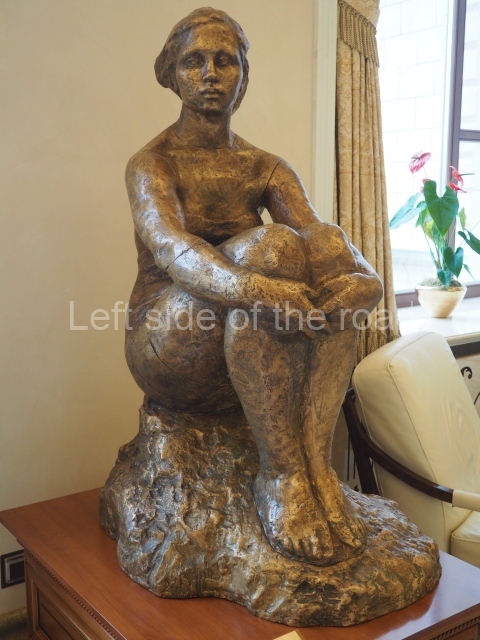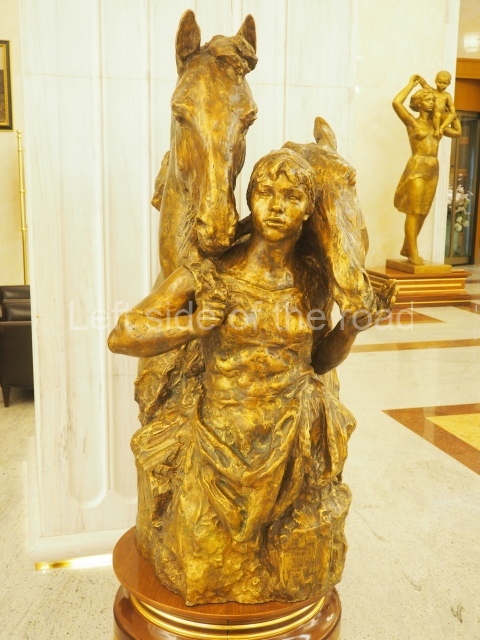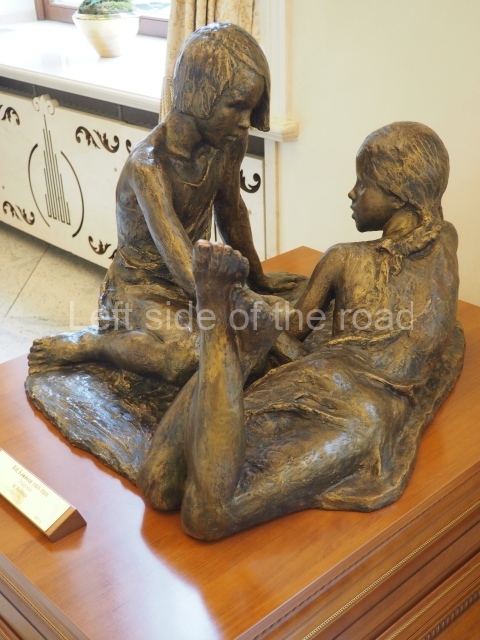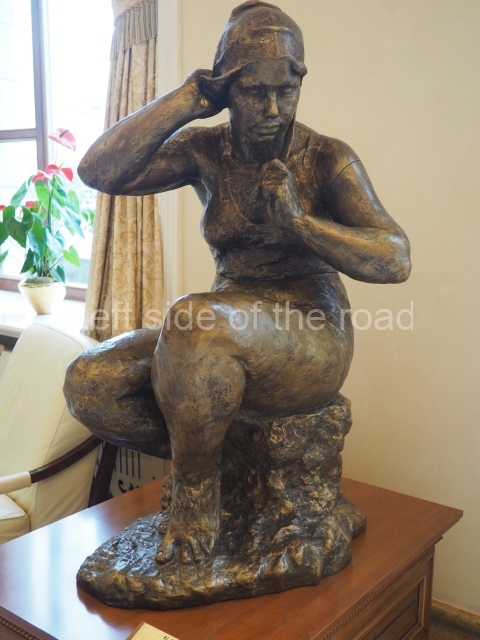
Enver Hoxha and the people of Tirana
More on Albania …..
View of the world
Ukraine – what you’re not told
Enver Hoxha – Speeches and articles
Enver Hoxha – Memoirs, Diary Selections and Compilations of Articles,
Selected Works
Speech Delivered on Independence Day and on the Arrival of the Democratic Government in Tirana, November 28, 1944. From Selected Works Volume I, 8 Nëntori Publishing House, Tirana, Albania, 1974, pp 399-40. First published in the Bulletin of the National Liberation War, N° 52, November 30, 1944.
Report to the 4th Plenum of the Central Committee of the Communist Party of Albania, October 17, 1945. Published in Selected Works Volume I, 8 Nëntori Publishing House, Tirana, Albania, 1974. pp. 428-462. First published in the Bulletin of the National Liberation War, N° 52, November 30, 1945.
Speech to the Constituent Assembly on the Presentation of the Resignation of the Government, January 11, 1946. First published in the newspaper Bashkimi, N° 320; republished in Selected Works Volume 1, pp 469-471.
Program of the First Government of the People’s Republic of Albania presented to the People’s Assembly of the PRA, March 24, 1946, published in Selected Works, Volume 1, pp 519-538, originally published in Bashkimi, N° 382.
Request to the Conference of Ministers of Foreign Affairs in Paris, April 17, 1946, Selected Works Volume 1, 8 Nëntori Publishing House, Tirana, Albania, 1974, pp 539-542.
Speech Delivered at the Plenary Session of the Paris Peace Conference, August 21, 1946. From Selected Works Volume I, 8 Nëntori Publishing House, Tirana, Albania, 1974, pp 593-614. First published in the newspaper Bashkimi, N° 540, September 22, 1946.
Telegram to Secretary General of United Nations Organisation in protest against the violation of the territorial waters of the PRA in the Corfu Channel by warships of Great Britain and against the entry of warships of the United States of America to the port of Durrës without the consent of the Government of the PRS, November 11 1946, Selected Works Volume 1, 8 Nëntori Publishing House, Tirana, Albania, 1974, pp 656-657.
Speech delivered to the People’s Assembly on the opening of the 3rd Regular Session of the 1st Legislature, July 12, 1947. From Selected Works, Volume I, 8 Nëntori Publishing House, Tirana, Albania, 1974, pp 661-695.
On the intellectuals, theses drafted for discussion at the meeting of the Bureau of the Party Committee for the city of Tirana which, on March 21, 1958, was to take up for consideration the report ‘On the work for the education of intellectuals’.
We shall go to Moscow not with ten banners, but with only one, with the Banner of Marxism-Leninism (Speech at the 18th Plenum of the CC of the PLA Concerning Liri Belishova’s Grave Mistakes in Line), September 6, 1960. Published in Albania Challenges Khrushchev Revisionism, 1976, pp 88-101.
The Revolutionary Communists expect China to come out openly against Khrushchevite Revisionism, April 3, 1962. Reflections on China, Volume 1, page 7, publisher The Institute of Marxist-Leninist Studies at the Central Committee of the Party of Labour of Albania, 8 Nentori Publishing House, Tirana, 1979.
The Modern Revisionists on the way to degenerating into Social-Democrats and to fusing with Social-Democracy. Reproduced from Zëri i Popullit dated April 7, 1964. Published in The Party of Labour of Albania in Battle with Modern Revisionism, Naim Frashëri Publishing House, Tirana, Albania, 1972.
The Defence of the Marxist-Leninist Line is vital for our Party and People and for International Communism (Contribution to the Discussion at the 18th Plenum of the CC of the PLA). September 7, 1960 Published in Albania Challenges Khrushchev Revisionism, 1976.
Speech at Meeting of 81 Communist and Workers’ Parties in Moscow on behalf of the Central Committee of the Party of Labour of Albania, November 16th 1960, Tirana, 1960, 71 pages. The speech where Enver Hoxha attacked the Revisionists of the Communist Party of the Soviet Union (and their hangers-on of the International Communist Movement) in Moscow in November 1960, one of the most important contributions in the struggle against modern revisionism.
Reject the Revisionist Theses of the XX Congress of the Communist Party of the Soviet Union and the Anti-Marxist Stand of Khrushchev’s Group! Speech delivered by Enver Hoxha as Head of the Delegation of the Party of Labour of Albania before the Meeting of 81 Communist and Workers Parties, Moscow, 16 November 1960. Different format of the speech above.
Speech at 81 Communist and Workers Parties Meeting, Moscow, 16 November 1960. Scanned from Selected Works Volume 3, 8 Nëntori Publishing House, Tirana, 1980, pp 93-163.
Speech in Commemoration of the 20th Anniversary of the Founding of the Party of Labour of Albania and the 44th Anniversary of the Great October Socialist Revolution, Tirana, November 7 1961 (excerpts). Delivered on November 7, 1961, at the ‘Tirana Festive Meeting Commemorating the 20th Anniversary of the Founding of the Party of Labour of Albania and the 44th Anniversary of the Great October Socialist Revolution.’ Published in The Party of Labour of Albania in Battle with Modern Revisionism, Naim Frasheri Publishing House, Tirana, Albania, 1972.
Marxism-Leninism is the guide and leader of every party and not Khrushchev’s conductor’s baton, from a conversation with a delegation of the Communist Party of Malaya, January 20, 1965.
Some Preliminary Ideas about the Chinese Proletarian Cultural Revolution, Speech to the 18th Plenum of the CC of the PLA, October 14, 1966. Text from Enver Hoxha. Selected Works Volume IV, 8 Nentori Publishing House, Tirana, 1982, pp 94-113.
Report on the activity of the Central Committee of the Party of Labour of Albania, held at the 4th Congress of the Party of Labour of Albania on February 13th 1961, Tirana, 1961, 193 pages.
Report to the 4th Congress of the PLA – On the activity of the Central Committee of the Party of Labour of Albania, (extracts), February 13th 1961, Selected Works, Volume 3, 8 Nëntori Publishing House, Tirana, 1989, pp 192-283. A cleaner version of the same report above.
For the Continuous Improvement of the Composition of the Party and its Growth — for the Protection of the Purity of its Ranks, Report of the Activities of the CC of the PLA, given at the 5th Party Congress of the PLA on 1st November 1966.
Report to the 5th Congress of the Party of Labour of Albania, 1 November 1966, excerpt concerning membership.
Speeches, conversations and articles, 1967-1968, 8 Nentori, Tirana, 1978, 499 pages.
Speeches, 1969-1970, On the further revolutionization of the Party and the whole life of the country, Naim Frasheri Publishing House, Tirana, 1971, 343 pages.
The Demagogy of the Soviet Revisionists Cannot Conceal Their Traitorous Countenance, January 10, 1969. From Zëri i Popullit daily; from The Party of Labour of Albania in Battle with Modern Revisionism, Naim Frashëri Publishing House, Tirana, Albania, 1972, pp 475-526.
Knowledge of the contradictions in the capitalist-revisionist world serves Marxist-Leninists in their struggle, from a conversation with a delegation of the Communist Party of Australia (Marxist-Leninist) December 8, 1969.
Conversations with Chou En-lai, Tirana, March 27-28, 1965, Enver Hoxha, 8 Nëntori Publishing House, Tirana, 1977, 37 pages.
Literature and the arts should serve to temper people with class consciousness for the construction of socialism, the closing speech delivered at the 15th Plenum of the CC of the PLA, October 26 1965. Published in Enver Hoxha, Selected Works, Volume 3, pp 832-859.
Our younger generation marches along the revolutionary road of The Party, Enver Hoxha, Tirana, 1968, 38 pages. Speech delivered at the mass rally at the Gradishta sector of the Rogozhina-Fieri railway under construction on June 28, 1968.
Our younger generation marches along the Revolutionary road of the Party, speech delivered at the mass rally at the Gradishta sector of the Rrogozhina-Fier railway under construction on June 28, 1968, November 8th Publishing House, Toronto, 2022, 40 pages.
Letter to Comrade Hysni Kapo, July 30, 1978.
The fist of the Marxist-Leninist Communists must also smash Left Adventurism, the offspring of Modern Revisionism. From a conversation with two leaders of the Communist Party (Marxist-Leninist) of Ecuador October 21, 1968. Selected Works Volume IV, pp 498-514.
Twenty-five years of struggles and victories on the road to Socialism, Enver Hoxha, Naim Frashëri Publishing House, Tirana, 1969, 95 pages. Speech delivered at the solemn meeting dedicated to the 25th anniversary of the Liberation of the country and the Victory of the People’s Revolution.
On further revolutionising our Party and the life of our country as a whole, Speeches 1967-68, Enver Hoxha, Naim Frashëri Publishing House, Tirana, 1969, 345 pages.
Letter to the Ninth Congress of the Chinese Communist Party, April 29, 1969, published in Peking Review No. 19, May 5, 1969.
It is in the Party-People-State power unity that our strength lies, Enver Hoxha, Naim Frashëri Publishing House, Tirana, 1970, 72 pages. Speech delivered to the voters of the Tirana 219 electoral district on September 18, 1970.
Information Bulletin of the Central Committee of the Party of Labour of Albania, No 3 1970, (not the full issue), Enver Hoxha, Speech at the 10th Plenum of the CC of the PLA ‘On the theoretical and practical significance of work organization’, 26th June 1970, Tirana, 1970, 21 pages.
Report submitted to the 6th Congress of the Party of Labour of Albania, Naim Frasheri, Tirana, 1971, 251 pages.
Summary Report to the 6th Congress of the Albanian Party of Labor, Albania Report, New York, 1972, 17 pages.
Intensify the ideological struggle against alien manifestations and liberal attitudes towards them, Enver Hoxha – from the Report submitted to the 4th Plenum of the Central Committee of the Party of Labour of Albania, June 26 1973, Selected Works, Volume 4, pp812-849.
Study Marxist-Leninist Theory – linking it closely with revolutionary practice, Enver Hoxha, Naim Frashëri Publishing House, Tirana, 1971, 56 pages. Speech at the solemn meeting commemorating the 25th anniversary of the founding of the ‘VI Lenin’ Party school.
Study Marxist-Leninist theory linking it closely with Revolutionary Practice, speech delivered at the meeting commemorating the 25th anniversary of the founding of the ‘V.I. Lenin’ Party School, November 8, 1970, November 8th Publishing House, Toronto, 2024, 46 pages.
Report on the role and tasks of the Democratic Front for the complete triumph of Socialism in Albania, Enver Hoxha, 8 Nëntori Publishing House, Tirana, 1974, 125 pages. Submitted at the 4th Congress of the Democratic Front of Albania, September 14 1967.
The Tragic Events in Chile. A Lesson for the Revolutionaries of the Whole World. Zeri i Popullit October 2, 1973.
On further revolutionising our Party and the life of our country as a whole, Speeches 1971-1973, Enver Hoxha, Naim Frashëri Publishing House, Tirana, 1974, 408 pages.
Our policy is an open policy, the policy of proletarian principles, Enver Hoxha, 8 Nëntori Publishing House, Tirana, 1974, 82 pages. Speech delivered at the meeting with the electors of the Tirana No 209 precinct on October 3rd, 1974.
Speech delivered to electors of the 209 Precinct in Tirana, Enver Hoxha, Norman Bethune Institute, Toronto, 1974, 37 pages. Speech delivered on October 3, 1974, at the meeting of electors of the No 209 Precinct in Tirana.
Writers and artists are assistants of the Party for the Communist education of our people, Enver Hoxha, Speech delivered at the meeting of the Secretariat of the Central Committee of the Party of Labour of Albania concerning the implementation to date of the tasks in literature and art set by the 4th Plenum of the CC of the PLA, December 20th 1974, from Enver Hoxha, Selected Works, Volume 4, 8 Nëntori Publishing House, Tirana, 1982, pp888-917.
Report submitted to the 7th Congress of the Party of Labour of Albania, 8 Nentori, Tirana, 1977, 255 pages.
Report of 7th Congress of the Party of Labour of Albania, November 1st, 1976 in Tirana, – Summary, Gamma Publishing, New York, 1976, 32 pages.
The crisis of Italian Modern Revisionism, Enver Hoxha, 8 Nëntori Publishing House, Tirana, 1977, 64 pages. Contains two articles: an article first published in ‘Zeri i Popullit’ on November 13th 1964 and Comments on the Theses of the 10th Congress of the Communist Party of Italy, written in November 1962.
English abstract of Enver Hoxha’s The Theory and Practice of Revolution. A lengthy editorial published on July 7, 1977, in Zëri i Popullit (The Voice of the People), the official organ of the ruling Albanian Party of Labour, expressed indirect criticism of the basic policy orientation of China.
Khrushchev kneeling before Tito, Enver Hoxha, 8 Nëntori Publishing House, Tirana, 1977, 64 pages. An article first published in the newspaper ‘Zeri i Popullit’, organ of the CC of the Party of Labour of Albania, on September 13th, 1963, under the title ‘Results of N Khrushchev’s Visit to Yugoslavia’, taken from the book Enver Hoxha – Speeches and articles (1963-1964), Tirana, 1977.
The line of our Party is a correct, revolutionary line, in conformity with the teachings of Marxism-Leninism, Enver Hoxha, Letter to all Party Basic Organizations, May 9, 1962, from Albania Today, 1977, No. 3 (34).
The PLA was formed in circumstances different from those of the other Communist Parties, Thursday, January 26, 1978. Published in Albania Today, No 5, 1987.
Albania is forging ahead confidently and unafraid, Enver Hoxha, 8 Nëntori Publishing House, Tirana, 1978, 51 pages. Speech delivered at the meeting with the electors of constituency No 219, Tirana, November 8, 1978.
Yugoslav ‘Self-Administration’ – a capitalist theory and practice, 8 Nëntori Publishing House, Tirana, 1978, 102 pages. An article written to counter the erroneous and anti-Socialist views of E Kardelj expressed in the book Directions of the Development of the Political System of Socialist Self-Administration.
Yugoslav ‘self-administration’ a capitalist theory and practice, against E. Kardelj’s anti-socialist views expressed in the book ‘Directions of the Development of the Political System of Socialist Self-Administration’, November 8th Publishing House, Ottowa, 2023, 113 pages.
With Stalin – Memoirs, Enver Hoxha, 8 Nëntori Publishing House, Tirana, 1979, 224 pages. On the occasion of the Centenary of the Birth of the Great Marxist-Leninist Joseph Stalin.
With Stalin – memoirs, November 8th Publishing House, Ottowa, 2022, 177 pages.
The Democratic Front led by the Party is the great organization which unites, organizes and educates the people politically, article published in the newspaper Bashkimi, June 3, 1979. Republished in Albania Today, No 4, 1979.
The Marxist –Leninist Movement and the World Crisis of Capitalism. This material was prepared in August 1979, at Pogradec, published by the Institute of Marxist –Leninist Studies at the Central Committee of the Party of Labour of Albanian, 1986-3, Socio-Political Studies, Tirana – published for the first time as a document of the PLA.
The experience of Marxist-Leninist Parties should be studied and utilized to strengthen our common struggle, from the talk with Joao Amazonas, first secretary of the Central Committee of the Communist Party of Brazil, September 8 1979, 13 pages.
We must firmly oppose the reactionary tactics of the capitalist and revisionist bourgeoisie with our revolutionary tactics, Enver Hoxha, Marx, Engels, Lenin, Stalin Institute, Toronto, 1980, 32 pages. From the talk with a member of the Political Bureau of the Central Committee of the Communist Party of India (Marxist-Leninist), November 14, 1970.
The great world economic crisis is intensifying, Tuesday July 1 1980, extracts from the political diary The Superpowers, Naim Frashëri Publishing House, Tirana, Albania, 1986, pp. 560 -572.
Eurocommunism is Anti-Communism, Workers’ Publishing House, London, 1980, 291 pages. Reformist ideology and Political Opportunism – Fundamental Characteristics of the Eurocommunist Parties.
Eurocommunism is Anti-Communism, November 8th Publishing House, Ottowa, 2023, 205 pages.
What lies behind the workers’ strikes at the Polish Baltic ports? Monday September 1 1980. Extracts from the political diary, The Superpowers, Naim Frashëri Publishing House, Tirana, Albania, 1986, pp. 579 – 597.
The events which are taking place in the Moslem countries must be seen in the light of dialectical and historical materialism, from Reflections on the Middle East, 8 Nëntori Publishing House, Tirana; 1984; pp 355-392.
Report to the 8th Congress of the Party of Labour of Albania, Enver Hoxha, 8 Nëntori Publishing House, Tirana, 1981, 281 pages. Submitted to the 8th Congress of the Party of Labour of Albania on November 1, 1981.
REFLECTIONS – Diary on International Questions, Pogradec, Wednesday July 15, 1981, from Socio-Political Studies 2, 1985, pp 49-66, The Institute of Marxist-Leninist Studies at The Central Committee of The Party of Labour of Albania.
Enver Hoxha on Mehmet Shehu, from The Titoites, Historical Notes, 8 Nëntori Publishing House, Tirana 1982 (extracts) pp581-633.
Comrade Enver Hoxha received a group of workers and had a cordial talk with them, published in Albania Today, No 5, 1983, pp5-7.
To the Congress of the Communist Party of Brazil. This document was first published in Albania Today, No 3, 1983.
Comrade Enver Hoxha’s message of greetings to the participants in the Celebration of the 40th Anniversary of the Congress of Përmet. First published in Albania Today, No 3, 1984.
The Albanian Anti-Fascist women found their road of salvation through the National Liberation War – Enver Hoxha, Speech delivered to the 1st Congress of the Albanian Anti-Fascist Women’s Union, November 4, 1944, Published in Albania Today No 5 (78) 1984, pp 43-44.
The 40th Anniversary of the 1st Congress of the Anti-fascist Women’s Union of Albania. Message of greetings of Comrade Enver Hoxha addressed to the former delegates to the 1st Congress of the AWUA, November 3, 1984, published in Albania Today, No 6, 1984, pp30-31.
The State Power we are building is the future of our country and people – Enver Hoxha, from the report submitted to the 2nd Meeting of the Anti-Fascist National Liberation Council of Albania, October 20, 1944. Published in Albania Today No 5 (78) 1984, pp 39-42.
The Khrushchevites – Memoirs, 8 Nëntori Publishing House, Tirana, 1984, 492 pages.
Message of greetings on the occasion of the 40th Anniversary of the Liberation of Albania, 29 November 1984, published in Albania Today, No 6, 1984.
Comrade Enver Hoxha’s message of greetings addressed to the participants in the celebration of the 40th Anniversary of the 2nd Meeting of the Anti-fascist National Liberation Council. First published in Albania Today, No 6, 1984.
Profound Marxist-Leninist analyses of the situation of classes and social strata, the positive and negative influences within Albanian society during the years of the National Liberation War. Reprinted from Laying the foundations of the New Albania (Memoirs and Historical Notes), 8 Nëntori Publishing House, Tirana, Albania, 1974, 30 pages.
Excerpts from the Political Diary and other documents on Albanian – Greek Relations, 1941-1984, Tirana, 1985, Two friendly peoples, pp 431-444, December 30, 1984. One of the last things Enver wrote before his death in April 1985.
About the international situation in the light of current events, extracts from the political diary The Superpowers, Naim Frashëri Publishing House, Tirana, Albania, 1986.
Our party will continue to wage the class struggle as it has always done — consistently, courageously and with maturity, from a conversation with Zhou Enlai, June 24, 1966, November 8th Publishing House, Toronto, 2022, 65 pages.
Enver Hoxha Speaks, speeches from 1944 to 1979, no publisher, Tirana, no date (but after 2020), 435 pages.
Proletarian democracy is genuine democracy, speech delivered at the meeting of the General Council of the Democratic Front of Albania, September 20, 1978, November 8th Publishing House, Ottowa, 2022, 40 pages.
Can the Chinese Revolution be called a Proletarian Revolution? November 8th Publishing House, Toronto, 2022, 67 pages.
On the Liberation of Women in Albania, speeches delivered to the 2nd Plenum of the Central Committee of the Party of Labour of Albania in June 1967 by Comrade Enver Hoxha and Ramiz Alia, November 8th Publishing House, Ottowa, 2023, 110 pages.
By way of a Testament, November 8th Publishing House, Ottowa, 2023, 98 pages.
Mission of friendship, speeches, documents and accounts from the visit of the DPRK government delegation to the People’s Republic of Albania, June 29-July 2, 1956, with Kim Il Sung, November 8th Publishing House, Ottowa, 2022, 59 pages.
On the death of the Great Stalin, November 8th Publishing House, Toronto, 2024, 64 pages.
More on Albania …..
View of the world
Ukraine – what you’re not told











